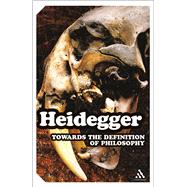
What is included with this book?
| Translator's Foreword | x | ||||
| Publisher's Note | xii | ||||
| I THE IDEA OF PHILOSOPHY AND THE PROBLEM OF WORLDVIEW | |||||
|
|||||
|
|||||
|
3 | (3) | |||
|
|||||
|
6 | (5) | |||
|
6 | (1) | |||
|
7 | (2) | |||
|
9 | (2) | |||
|
|||||
|
|||||
|
11 | (3) | |||
|
11 | (1) | |||
|
12 | (2) | |||
|
14 | (4) | |||
|
18 | (2) | |||
|
20 | (4) | |||
|
|||||
|
24 | (1) | |||
|
25 | (3) | |||
|
28 | (4) | |||
|
32 | (3) | |||
|
35 | (4) | |||
|
39 | (10) | |||
|
39 | (3) | |||
|
42 | (2) | |||
|
44 | (5) | |||
|
49 | (4) | |||
|
|||||
|
|||||
|
53 | (12) | |||
|
53 | (2) | |||
|
55 | (2) | |||
|
57 | (8) | |||
|
|||||
|
|||||
|
|||||
|
65 | (6) | |||
|
71 | (9) | |||
|
|||||
|
80 | (2) | |||
|
82 | (10) | |||
|
83 | (4) | |||
|
87 | (3) | |||
|
90 | (2) | |||
|
92 | (18) | |||
|
93 | (2) | |||
|
95 | (3) | |||
|
98 | (5) | |||
| II PHENOMENOLOGY AND TRANSCENDENTAL PHILOSOPHY OF VALUE | |||||
|
|||||
|
|||||
|
103 | (5) | |||
|
108 | (2) | |||
|
|||||
|
|||||
|
110 | (6) | |||
|
112 | (3) | |||
|
115 | (1) | |||
|
116 | (3) | |||
|
|||||
|
119 | (6) | |||
|
120 | (1) | |||
|
121 | (3) | |||
|
124 | (1) | |||
|
125 | (10) | |||
|
125 | (3) | |||
|
128 | (3) | |||
|
131 | (4) | |||
|
135 | (3) | |||
|
138 | (5) | |||
|
139 | (1) | |||
|
140 | (3) | |||
|
|||||
|
143 | (3) | |||
|
146 | (6) | |||
|
|||||
|
|||||
|
152 | (3) | |||
|
155 | (6) | |||
|
155 | (2) | |||
|
157 | (2) | |||
|
159 | (2) | |||
|
161 | (8) | |||
|
169 | ||||
| APPENDIX I ON THE NATURE OF THE UNIVERSITY AND ACADEMIC STUDY | |||||
|
|||||
|
173 | (20) | |||
| APPENDIX II THE IDEA OF PHILOSOPHY AND THE PROBLEM OF WORLDVIEW | |||||
|
|||||
|
|||||
| Editor's Afterwords to the First and Second Editions (1987, 1999) 189 | |||||
| Short Glossary | 193 |
The New copy of this book will include any supplemental materials advertised. Please check the title of the book to determine if it should include any access cards, study guides, lab manuals, CDs, etc.
The Used, Rental and eBook copies of this book are not guaranteed to include any supplemental materials. Typically, only the book itself is included. This is true even if the title states it includes any access cards, study guides, lab manuals, CDs, etc.